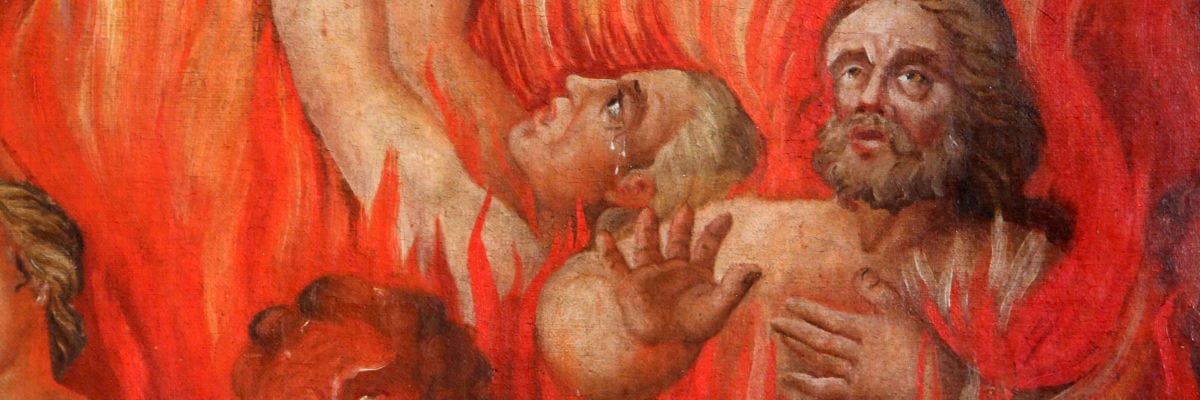
Questions surrounding the Doctrine of Hell are often an obstacle to people who are learning about the Catholic faith. Karlo Broussard discusses why the Doctrine of Hell and an all-good God don’t contradict each other, but rather go hand in hand.
Transcript:
Often unbelievers have a hard time reconciling the doctrine of hell with an all-good God. In fact, I’ve talked to Catholics who struggle with this.
So, what can we say to help?
First, as the Catechism teaches in paragraph 1472, the punishment of hell is not a kind of vengeance inflicted by God from without, but follows from the nature of sin. As C.S. Lewis writes in The Great Divorce, “There are only two kinds of people in the end: those who say to God, ‘Thy will be done,’ and those to whom God says, ‘Thy will be done.’ Hell is for the latter. All those there choose it.”
Now, if someone rejects God and doesn’t wish to be with Him, wouldn’t it belong to God’s goodness to not coerce that person into loving him and respect that person’s free will? I think it would. If that’s the case, then the possibility of Hell, which is definitive self-exclusion from God, is not incompatible with God’s goodness.
Furthermore, it belongs to God’s goodness to make a distinction between loyal and disloyal subjects and to give them their just deserts. Just like it wouldn’t be good for parents to give their children’s inheritance to a sibling who has rejected them all their lives and then all of sudden, without remorse mind you, ‘comes a knockin’ when the parents are dying, so to it wouldn’t be good for God to give Heaven as a reward to his children that refuse to love him even until their death.
So, does hell contradict God’s goodness? I don’t think so.
If you want to learn more about this topic and others like it, visit our website at catholic.com.
For Catholic Answers, I’m Karlo Broussard. Thanks for watching.


